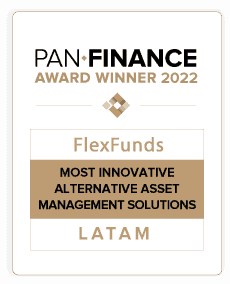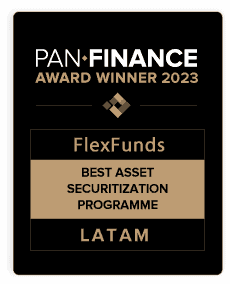- Hedge funds are among the most established financial instruments primarily targeted at institutional investors and high-net-worth individuals.
- One of their notable characteristics is the flexibility to select investment strategies, allowing them to take advantage of different market conditions.
- Their main strategies for generating returns include short and long sales, as well as the use of leverage and derivatives.
- FlexFunds offers solutions that allow you to securitize any hedge fund, helping you expand your distribution.
Hedge funds originated in the mid-20th century and are among the most recognized financial instruments among accredited investors due to their ability to exploit market inefficiencies and generate returns regardless of market conditions.
Hedge funds have a long history and emerged from the work of Australian sociologist Alfred Winslow Jones, who devised a mechanism to capitalize on changing market conditions while managing the risk of long-term investments during his research for Fortune magazine.
To achieve this, Jones combined an investment strategy based on taking short positions in securities he believed were overvalued and expected to decline in price. At the same time, he created a hedge by taking long positions in undervalued stocks that he expected to increase in price.
Jones set several precedents in the financial world by employing other strategies, such as leverage, to increase the size of his positions. He also introduced concepts such as the incentive fee (20% of profits).
The principles defined back then paved the way for popularizing these financial instruments, which have evolved and adapted to different regulatory environments over time, as their characteristics have been associated with various economic crises throughout history.
How do hedge funds operate today?
Currently, hedge funds manage enormous amounts of capital. In the first quarter of the year, the total global capital invested in these funds increased to $3.88 trillion, representing a quarterly increase of $50 billion, according to Hedge Fund Research (HFR).1
Capital allocation to hedge funds occurred despite a challenging global economic environment marked by risks in the banking system, geopolitical issues, and inflation, as highlighted by HFR.
But what exactly do hedge funds seek, and what strategies do they employ to achieve their financial goals?
Hedge funds primarily aim to achieve absolute returns through different active investment strategies, regardless of whether the market is bearish or bullish, aiming to capitalize on various market opportunities.
Other essential characteristics include the following:
- Adopting flexible investment strategies.
- Access to accredited investors.
- Using leverage and derivatives.
- Generally high management fees.
- Less regulation and oversight compared to traditional investment funds.
What types of strategies do hedge funds employ?
To exploit market inefficiencies, hedge funds employ various strategies to take advantage of the performance of different financial instruments, such as stocks, bonds, derivatives, currencies, and commodities. FlexFunds, a leading company in setup and launching investment vehicles, enables cost-efficient securitization of hedge funds, facilitating access to international investors and expanding distribution in private banking.
According to experts’ opinions, the following are four common strategies employed by hedge funds to capitalize on market conditions:
- Short and long sales: As mentioned, one of the main characteristics of hedge funds is their ability to profit from both rising and falling asset prices. They achieve this through short and long sales. They take a short position by selling an asset borrowed, expecting its price to decrease in the future, and then repurchasing it at a lower price to profit from the difference. Conversely, they take a long position by acquiring an undervalued asset with the projection that its price will increase over time and then sell it at a higher value.
- Event-driven strategies: Hedge funds constantly monitor situations where imbalances in assets arise. Particularly, event-driven strategies focus on monitoring situations that can affect the price of these assets and then execute other schemes to capitalize on these factors. These situations include bankruptcies or restructurings, mergers, and acquisitions, among other events that generate disruptions in businesses and assets.
- Global factors: As part of the strategies followed by hedge funds, active analysis of global macroeconomic factors plays a significant role in taking positions in assets that may be affected or benefited by situations such as monetary policy decisions, which in turn impact bonds, currencies, or stocks.
- Arbitrage: Through this strategy, hedge funds take simultaneous positions in correlated assets and seek to profit from price differentials, such as equity traded on different stock exchanges. Additionally, hedge funds may employ risk arbitrage tactics, which involve capitalizing on market inefficiencies to bet on assets that are prone to price changes due to specific situations, such as a merger or acquisition, that may alter the value of their securities.
In conclusion, hedge funds are financial instruments specialized in generating positive returns regardless of the overall market trend, and due to their large size, they have the power to influence the global economy based on their performance.
Hedge funds can be securitized through FlexFunds’ tailor-made solution, “FlexFeeder,” which allows you to efficiently feed the fund, facilitating access to additional distribution channels, such as global private banking. If you would like to learn more about our solutions, please feel free to contact us.
Sources:
- https://www.hfr.com/news/hedge-fund-capital-rises-for-second-consecutive-quarter-as-bank-economic-risks-surge







